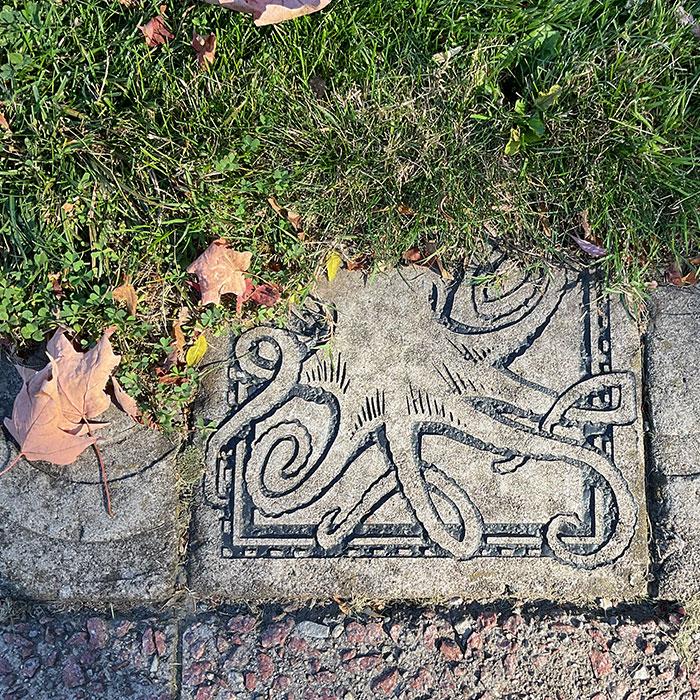
‘Odyssea Americana’ art exhibit opens at The Soil Factory Sept. 4
Photography, drawing, maps, calligraphy, installations and audio recordings depict a trip by three scholar-artists in honor of Odysseus’ epic voyage, but in North America.
 Department Homepage
The College of Arts & Sciences
Department Homepage
The College of Arts & Sciences

Photography, drawing, maps, calligraphy, installations and audio recordings depict a trip by three scholar-artists in honor of Odysseus’ epic voyage, but in North America.
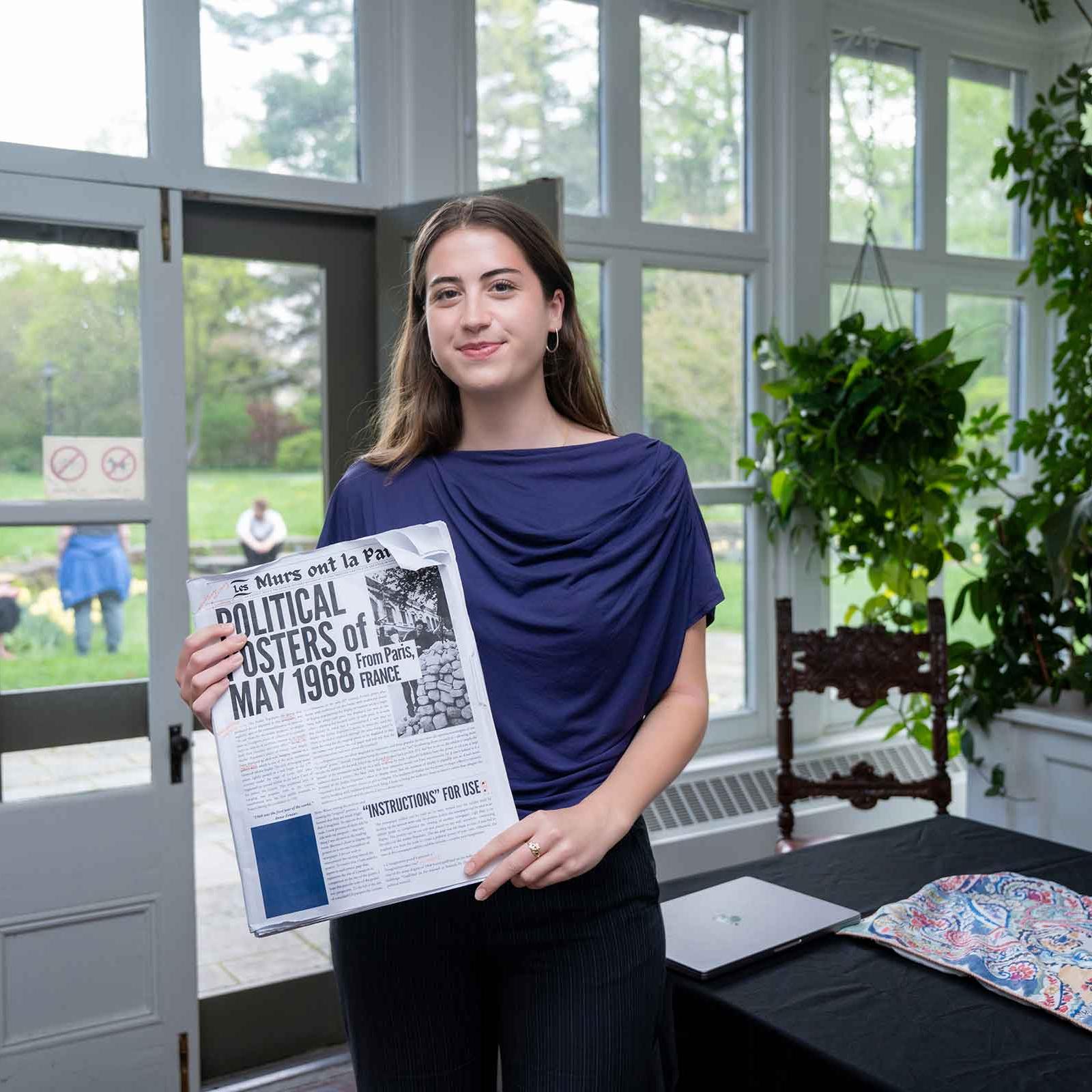
Projects spanned topics from Confederate cemeteries to Korean textiles.
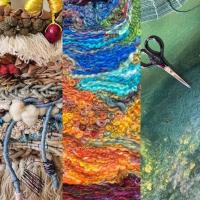
This May, Orozco Gallery will open its doors as a pop-up space for creativity, connection, and cultural celebration at 115 S Cayuga St, Downtown Ithaca.
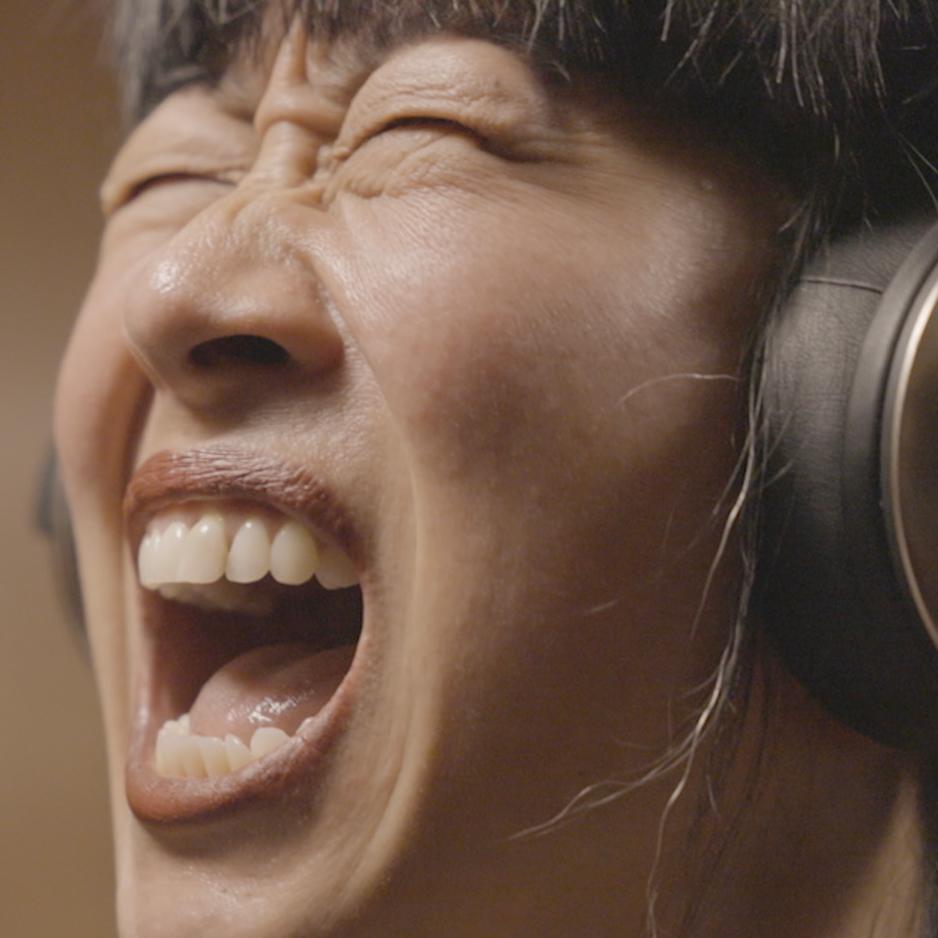
Three short documentaries produced in a Rural Humanities Seminar, taught by PMA Associate Professor Austin Bunn, are headed to film festivals this fall.

Bitcoin mining consumes 2.3% of all U.S. electrical demand.
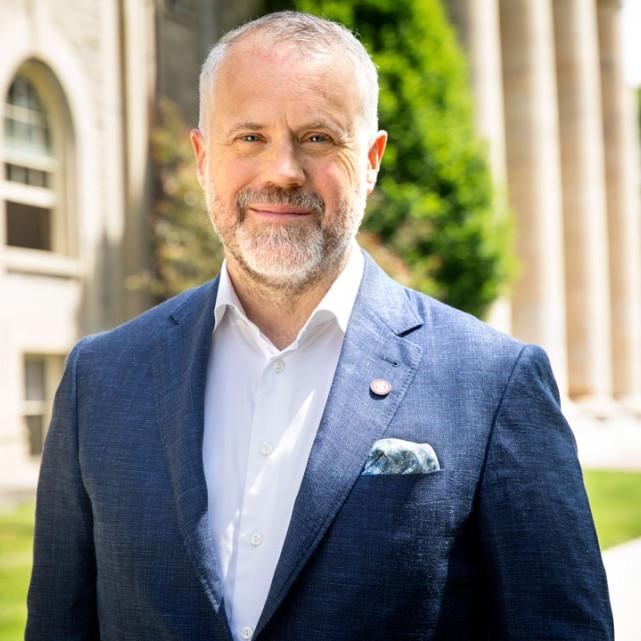

Coming from the University of Toronto, where he was the director of the Munk School of Global Affairs and Public Policy, Loewen began his five-year appointment as the Harold Tanner Dean of the College of Arts and Sciences Aug. 1.
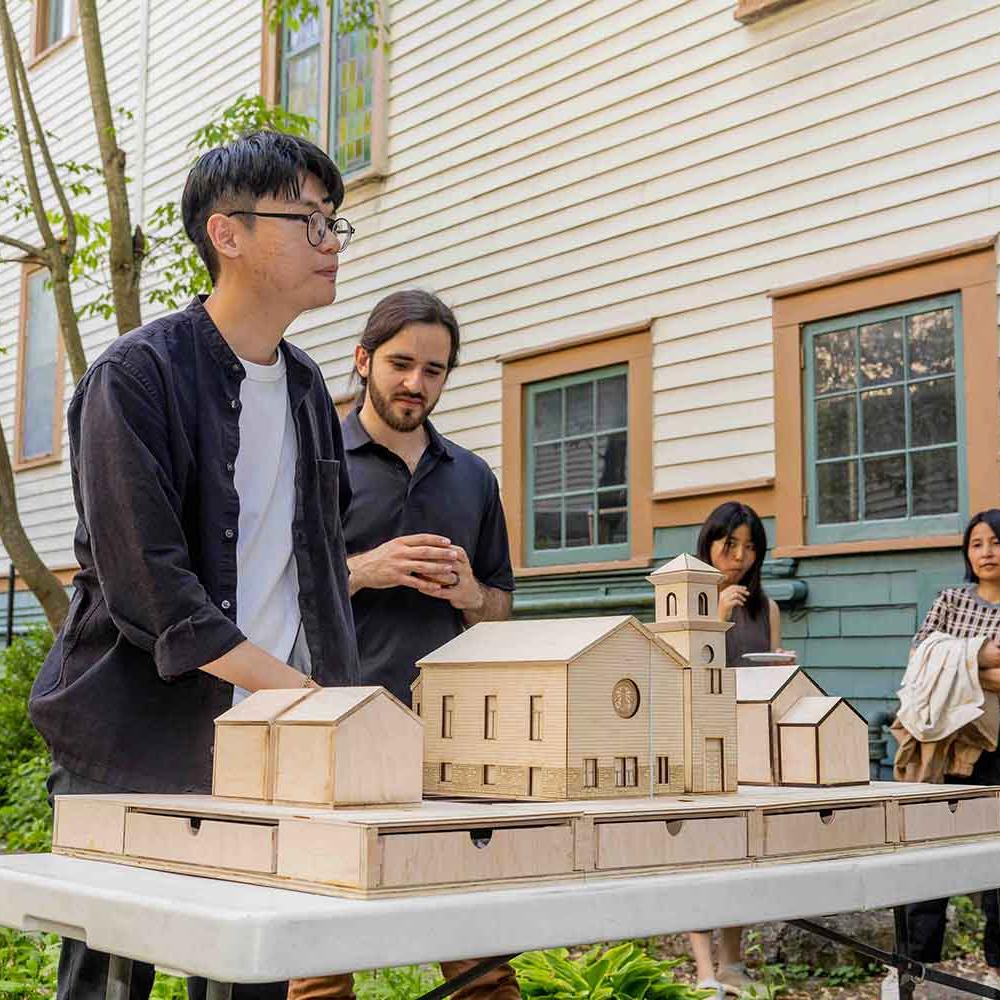
Funding is available for faculty and students with projects related to rural humanities.
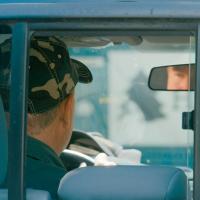
A trio of short films showing the pleasures – and perils – of rural life for LGBTQ+ people will show April 26 as part of the Rural Humanities Initiative in the College of Arts and Sciences.
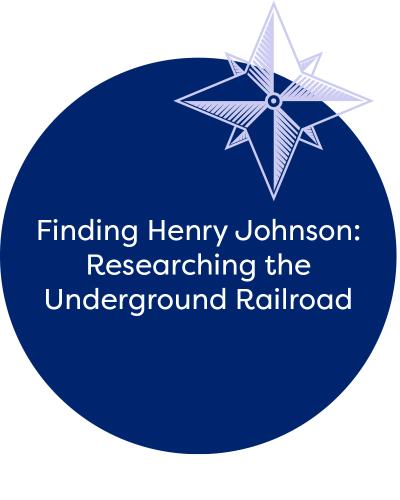
Alexandre Saint-Sauveur is a junior at Horace Mann School in the Bronx, New York. This essay describes his transformative research internship with the Underground Railroad Research Project.
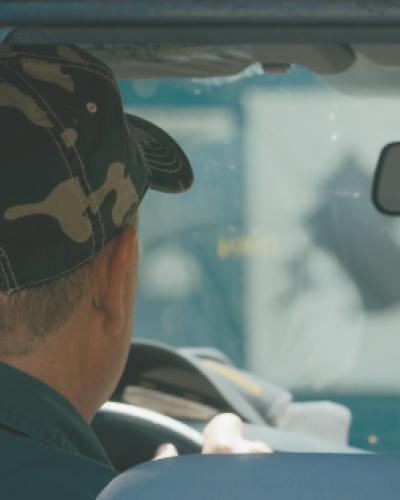
PMA professor Austin Bunn wins Best LGBTQIA+ Short Award at CIFF47 for his short film "Campfire" developed with Rural Humanities faculty grant funding from the Mellon Foundation.
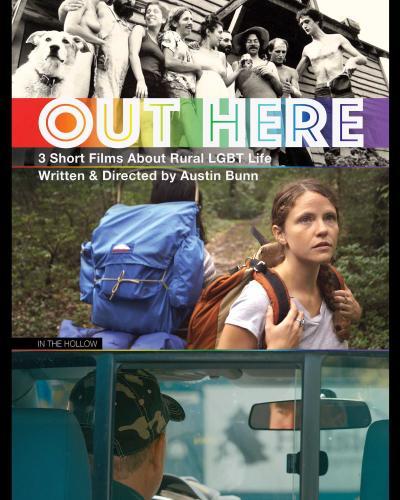
This spring event, sponsored by Cornell's Rural Humanities Initiative, will feature three award-winning short films by writer/director Austin Bunn, Associate Professor in the Department of Performing and Media Arts.
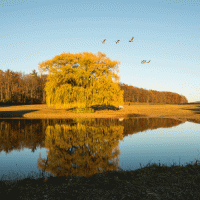
Moving beyond rural environments as objects of study and fields of research in academic settings, the 2023 summer practicum will rely on ethical engagement with places, people, and practices that seek to transform Ithaca and its broader environs towards livable, equitable futures.
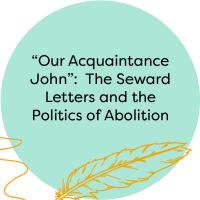
2022 Exemplary Project Grant recipient Jessica Ness describes her experience delving into the history of the Seward family and their role in abolitionist politics.
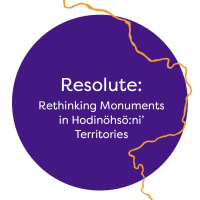
In an essay as part of the RH Pamphlet Collection, 2022 Exemplary Project Grant recipient Bushra Aumir describes her art installation, Resolute.
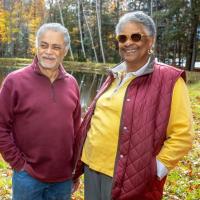
Using a faculty grant from the Rural Humanities initiative, Shorna Allred (CALS) produced "The Stories Trees Have to Tell," a 30-page publication highlighting the stories of five Black owners of forestland in Massachusetts, New York, New Hampshire and Vermont.
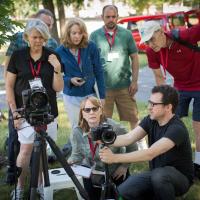
A&S faculty will lead many courses on campus and join educational vacations as part of Cornell Adult University.
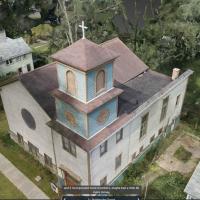
The 3-D tour focuses on the building, its foundation, the archaeological excavation underway and a Civil War monument on the church site.
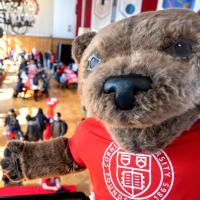
On Cornell’s eighth Giving Day, held March 16, 15,905 alumni, students, faculty, staff, parents and friends from more than 80 countries made gifts totaling a record-breaking $12,268,629.

Gifts allow the College to fulfill its mission: preparing students to do the greatest good in the world.
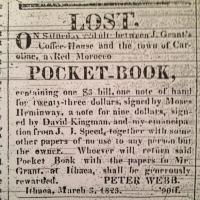
The new “Voices on the Underground Railroad” website focuses on nine documented or rumored stops on the Underground Railroad in Central and Western New York.
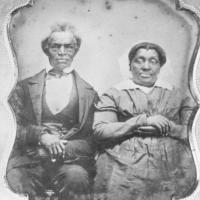
Five essays that explore how students created publicly-engaged projects are available online.

The RH Pamphlet collection publishes graduate and undergraduate student essays written as part of either our Community Partnership or Exemplary Project grants.Physical copies of the pamphlets are available in the A.D. White House.
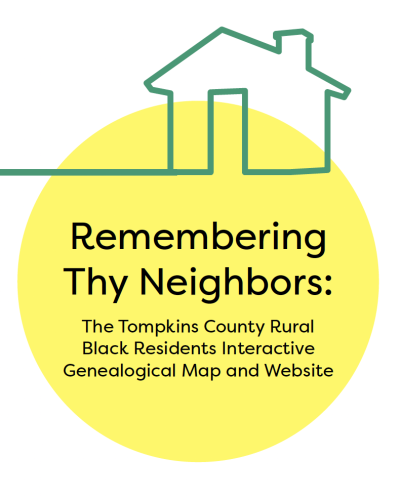
In an essay as part of the RH Pamphlet Collection, 2021 Exemplary Project Grant recipient Ethan Dickerman (M.A student at the Cornell Institute for Archaeology & Material Studies) walks readers through the background and inspiration behind the Tompkins County Rural Black Residents (TCRBR) project, a digital humanities/public history website....
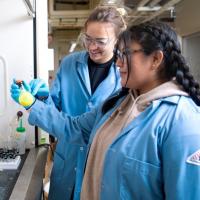
The program connects undergraduates in A&S with opportunities to work side by side on research with Cornell faculty from across the College.
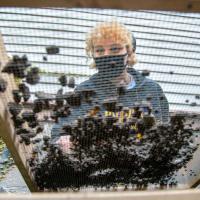
Church members and a multidisciplinary team of Cornell faculty and students are learning more about St. James A.M.E. Zion Church by doing an archaeological dig.
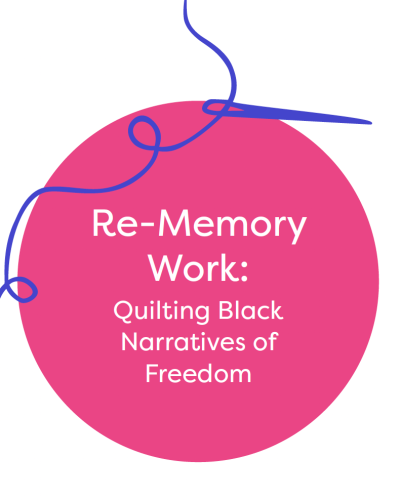
In the following booklet, 2021 Exemplary Project Grant recipient Jehan Roberson (PhD candidate in Literatures in English) reflects on her experience crafting a fictional narrative for the Voices of the Underground Railroad website, an online collection of stories mapped on to documented and rumored underground railroad stations and safe houses in...
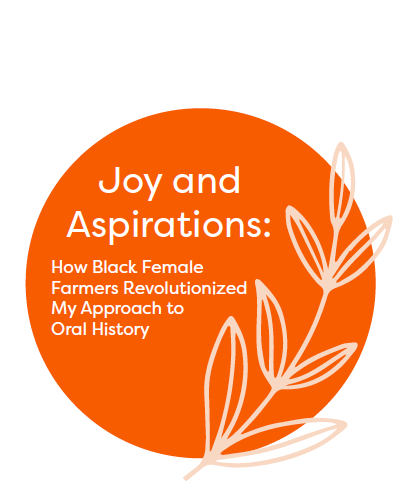
In this essay booklet, 2021 Community Partnership Grant recipient Lyrianne Gonzalez (History) details her oral history work with Black farmers in New York State. The project was developed during the 2021 Rural Humanities Spring Seminar on Rural Black Lives.Click to read the essay booklet online!In preparation to conduct interviews with local New...
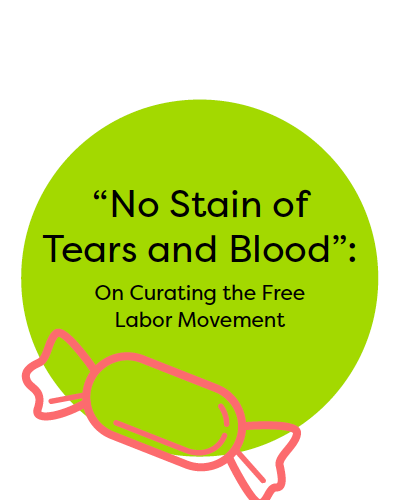
In this iteration of our RH Pamphlet Collection, 2021 Exemplary Project Grant recipient Charline Jao (Literatures in English) reflects on the creation of her digital humanities website mapping the Free Produce movement, a project she developed during the 2021 Rural Humanities Spring Seminar on Rural Black Lives.Click to read the essay booklet...
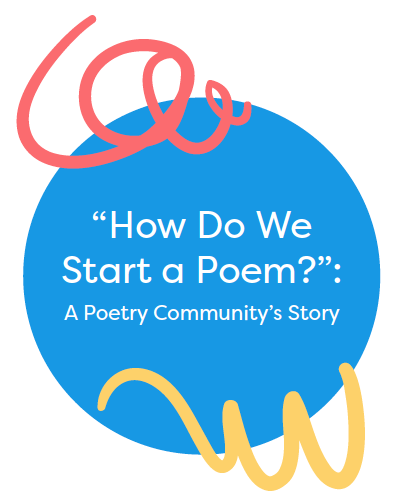
In the first of our Grant Recipient essay series, 2020 Spring Seminar participant and Community Partnership Grant recipient Shaloni Pinto (ILR '20) writes of her summer working with the Poetic Justice project.Click to read the essay booklet online!Pinto built on Cornell's long-standing collaboration with George Junior Republic High School in...
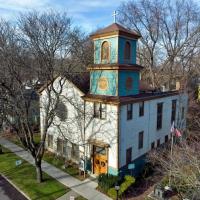
The Underground Railroad Project at St. James A.M.E. Zion Church, the Foodnet Meals on Wheels program, and Khuba International and the Learning Farm received collaboration awards for partnering with Cornell to improve the lives of Tompkins County residents.

The deep history of human occupation across all of North America is Indigenous history – in fact, over 98 percent of human occupation in the Ithaca area took place before European-American settlers arrived. Americans and Canadians, both rural and urban, move through Indigenous lands and encounter Indigenous heritage as they go about their daily...

The Nexus Scholars program will leverage the student-to-faculty ratio and the vibrant research enterprise in A&S to expand opportunities for students, while also enhancing the culture of collaborative scholarship at Cornell.
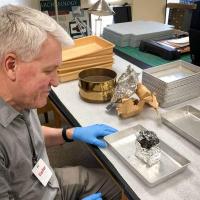
A collaboration between the Cornell Tree-Ring Laboratory and the New York State Museum in Albany has established a more precise timeline for some of the most iconic archeological sites in the Mohawk Valley.
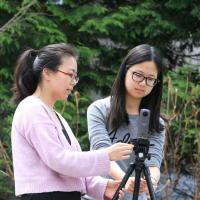
This fall, the Center for Teaching Innovation (CTI) is coordinating a community of practice featuring workshops led by faculty to explore digital storytelling methods

A multidisciplinary team of Cornell students and faculty and local schoolchildren began an archeological dig Sept. 18 at St. James AME Zion church in Ithaca.
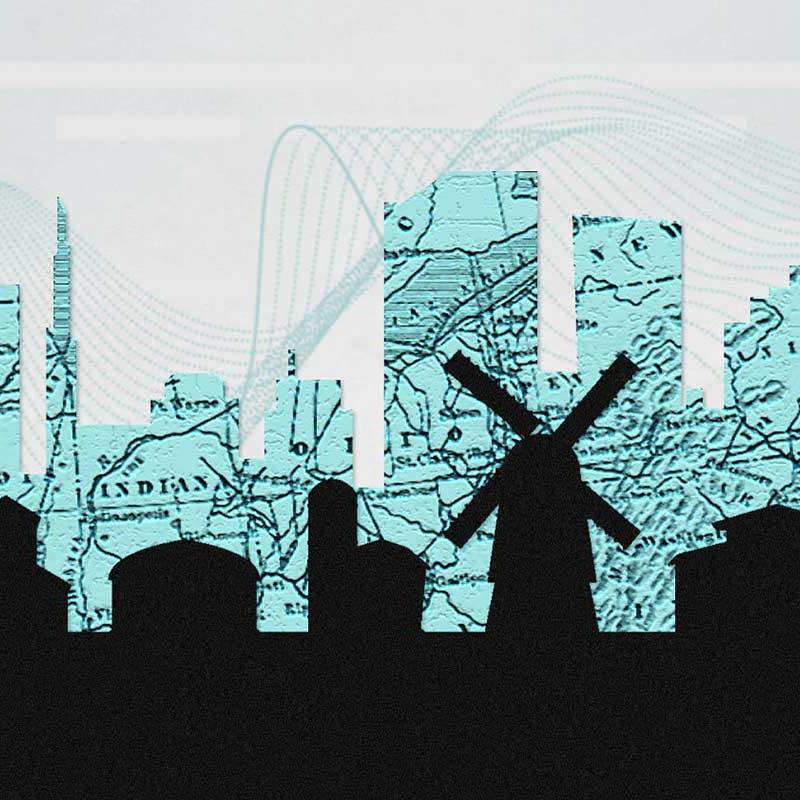
Research supported by the 14 grants ranges from the physics of quantum computing to the design of new musical instruments.
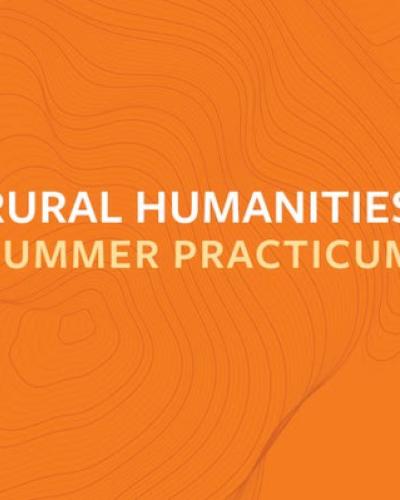
Beginning June 21, Rural Humanities will offer an online Summer Practicum focusing on this year's focal theme of Rural Black Lives.The Rural Humanities Summer Practicum is offered each summer to allow graduate students and advanced undergraduates to deepen public and engaged humanities projects in our local region that they have begun or are...
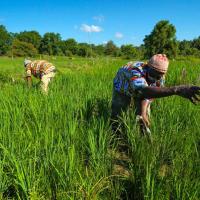
Rural Humanities will offer a webinar, “Black Land Matters: A Rural Humanities Webinar on Black Farming and Food Security,” on March 4, part of a conversation on Black land ownership, farming and food security.
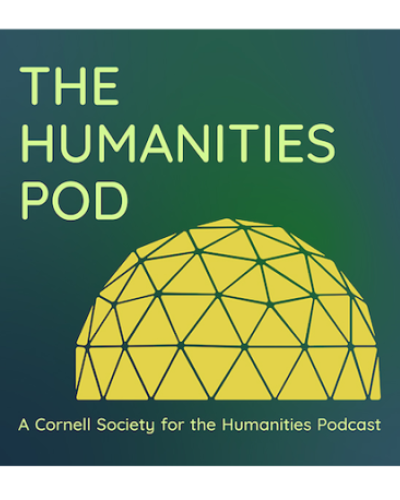
The humanities thrive where people can gather to converse and collaborate.“The Humanities Pod,” a podcast launched this semester by the Society for the Humanities in the College of Arts and Sciences, provides a space for humanities scholars to share ideas virtually, keeping cross-disciplinary dialogue going even during pandemic conditions and...
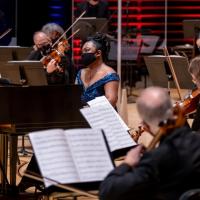
Cornell music faculty are working with the Philadelphia Orchestra to bring to light the works of a historically erased composer.
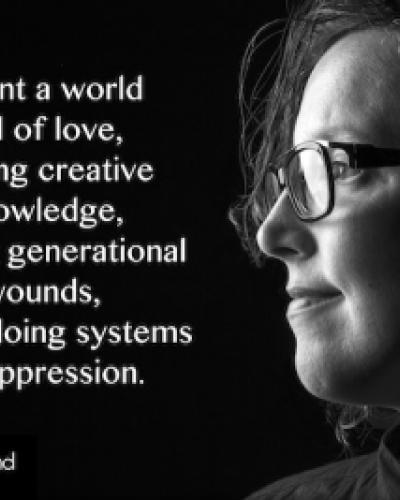
KAR Robison, a CALS junior majoring in environment and sustainability, passed away unexpectedly in December, 2020. They were 41. KAR was involved in several Rural Humanities projects and was a participant in the Spring Seminar. In a memorial tribute to KAR, Gerard Aching reflects on their involvement in community projects and their commitment to...
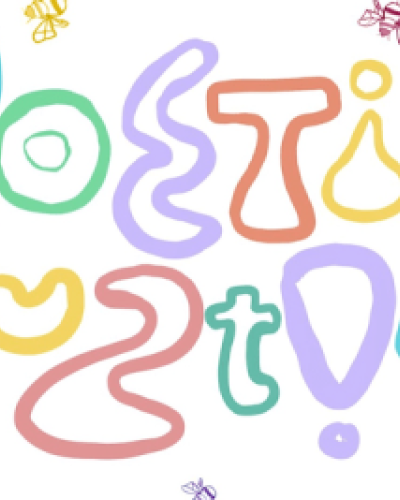
Spearheaded by Rural Humanities 2020 Spring Seminar participant Shaloni Pinto (ILR, '20), the Poetic Justice project built on Cornell’s long-standing collaboration with George Junior Republic High School in Freeville, NY.Pinto's experiences are detailed in the linked online booklet, a digitized version of her essay titled "'How Do We Start a Poem...
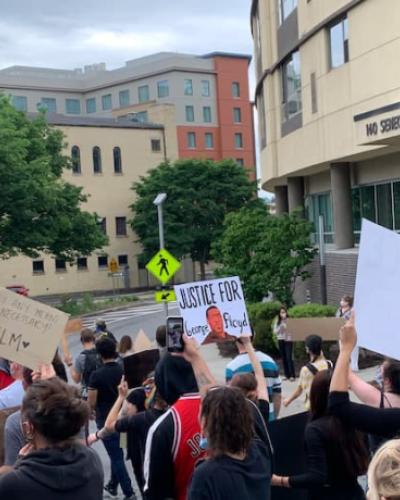
The first half of 2020 witnessed the brutal execution-style killing of George Floyd by law enforcement officials in Minneapolis; the same day in Central Park, a white dog owner called the police on an “African American male,” Christian Cooper, who was “threatening” her by simply asking her to leash her dog. Prior to these events, police killed...

The Rural Humanities Summer Practicum is being offered to allow graduate students and advanced undergraduates to deepen public and engaged humanities projects in our local region that they have begun or are adequately prepared to undertake during an intensive 6-week program. With the practicum, the Rural Humanities Initiative aims to make...
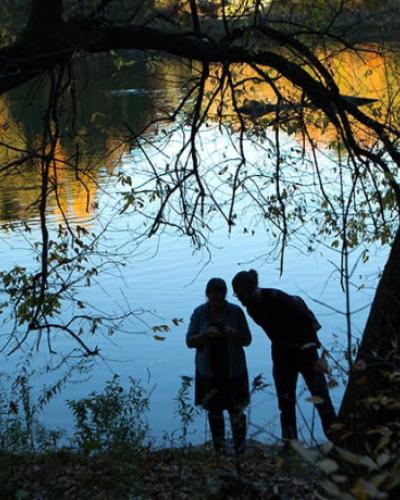
The complex dynamics between rural and urban life have profound implications for America’s future, from the economy to the environment and beyond.A new Rural Humanities scholarly initiative, funded for four years by a million-dollar grant from The Andrew W. Mellon Foundation, will leverage Cornell’s position in central New York to reinvigorate...